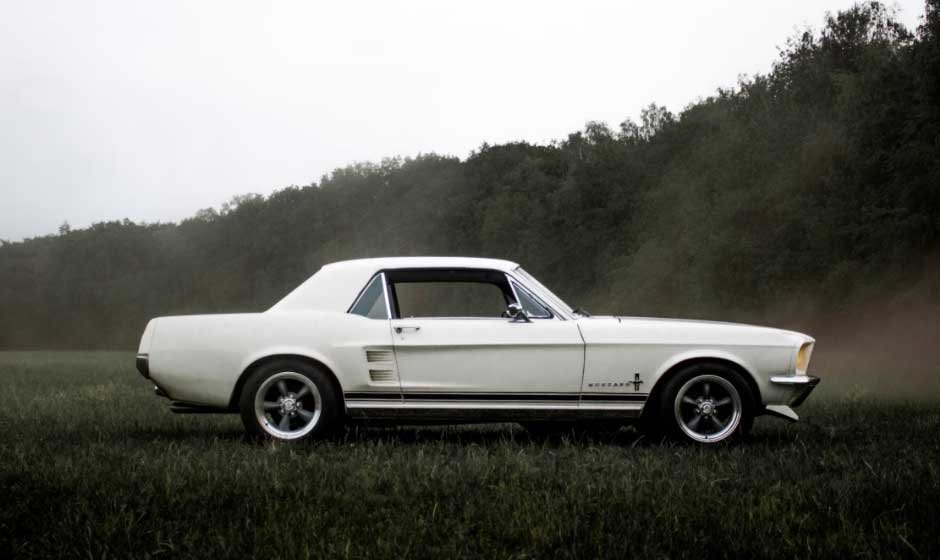Many car owners find themselves questioning whether their ageing vehicle is worth restoring or if it makes more sense to sell it for scrap. Overall, restoring a vehicle can be a rewarding project, but it requires careful evaluation before committing to the process.
Deciding whether to restore a car or scrap it involves estimating costs, the availability of spare parts, and potential resale value, among other things. For those who see the potential in restoring their old auto, understanding the key factors that influence this process is very important. If the decision to scrap a vehicle turns out to be the best option, the car buying company JunkCarsUS offers a practical solution for owners.
Assessment of the Condition of the Car
Structural Integrity and Rust Damage
One of the most important aspects to examine is the car’s frame and body condition. Extensive rust or structural damage can significantly increase the cost of restoration. A vehicle with a solid foundation is a better candidate for refurbishment than one requiring extensive welding and panel replacement. Corrosion in critical areas like the chassis, suspension mounting points, and floor panels can make restoration unfeasible without substantial financial commitment.
Mechanical Health and Engine Viability
Engines and transmissions are among the most expensive components to repair or replace. If a car’s engine is beyond repair or finding replacement parts is difficult, the restoration process can become costly. Vehicles with intact drivetrains or minor mechanical issues are often more practical to restore. Regular maintenance history also plays a role in determining whether an engine rebuild is worth pursuing.
Availability of Replacement Parts
Some classic cars have a strong aftermarket support system, making it easier to source parts. Others may require custom fabrication, significantly increasing expenses. Researching the availability of replacement components is crucial before investing in a restoration project. Limited availability of original parts can lead to significant delays and increased restoration costs.
Cost Considerations of Restoration
Budgeting for Repairs and Labour
Restoring a car requires a financial commitment, with costs varying based on the level of work needed. Major expenses include:
- Bodywork and paint restoration
- Engine and transmission repairs
- Upholstery and interior refurbishing
- Electrical system rewiring
- Suspension and brake overhauls
- Wheel and tyre replacement.
A well-planned budget ensures that restoration expenses remain manageable. Unexpected costs often arise, and it is essential to have a financial cushion for unforeseen repairs.
Evaluation of Market Value vs. Restoration Costs
A restored vehicle should ideally be worth more than the total cost of repairs. Researching similar models on the market helps determine whether the investment is financially viable. Some cars appreciate in value over time, while others may not justify the restoration expenses. Rare models or vehicles with historical importance may yield higher resale value, making the restoration effort more worthwhile.
Sentimental and Historical Value
Personal Attachment to the Car
Some owners choose to restore a vehicle due to sentimental reasons, regardless of financial feasibility. If the car has been in the family for generations or holds significant personal memories, restoration may be a worthwhile endeavour. Emotional value often outweighs financial logic when deciding whether to restore or scrap a car.
Collectibility and Rarity
Certain classic cars hold historic value and are highly sought after by collectors. Limited-production models or those with unique features often fetch higher prices in the market, making restoration a potentially lucrative decision. Models with racing history, special edition badges, or those with original factory specifications tend to be valued more by enthusiasts.
When Selling for Scrap Is the Better Option
Extensive Damage and High Costs
If a car has severe rust damage, an irreparable engine, or requires extensive custom parts, scrapping may be the most logical solution. Vehicles that need a full rebuild with minimal return on investment are generally not ideal candidates for restoration. The cost of fabricating unavailable parts or sourcing rare components can make scrapping a more practical decision.
Lack of Market Demand
Some older cars do not retain value due to low demand. If a vehicle lacks desirability in the classic car market, restoration expenses may outweigh potential resale profits. Researching current market trends can help determine if scrapping is the smarter financial decision. Vehicles from mass-produced lines with no significant historical value are often better suited for recycling rather than restoration.
The Environmental Impact of Scrapping vs. Restoring
Recycling Benefits of Scrapping a Car
Scrapping an old car contributes to sustainable recycling efforts by repurposing metal, plastics, and glass. Key benefits of vehicle recycling include:
- Reduction of waste in landfills
- Lower energy consumption compared to manufacturing new materials
- Recovery of valuable metals like steel and aluminium
- Responsible disposal of hazardous fluids such as oil and coolant.
Environmental Considerations of Restoration
Restoring a vehicle reduces the need for new car production, which helps lower overall carbon emissions. However, excessive restoration projects requiring new material fabrication may have a higher environmental footprint than expected. Sustainable restoration practices include:
- Using recycled or refurbished parts
- Avoiding excessive replacement of functional components
- Selecting eco-friendly paint and materials.
Final Thoughts
Restoring a car can be a fulfilling experience, but only if the vehicle holds value, has accessible parts, and the financial investment makes sense. If costs are too high or the vehicle lacks market interest, scrapping remains a practical and profitable option. Careful consideration of all factors ensures that owners make an informed choice that aligns with both financial and personal goals.

